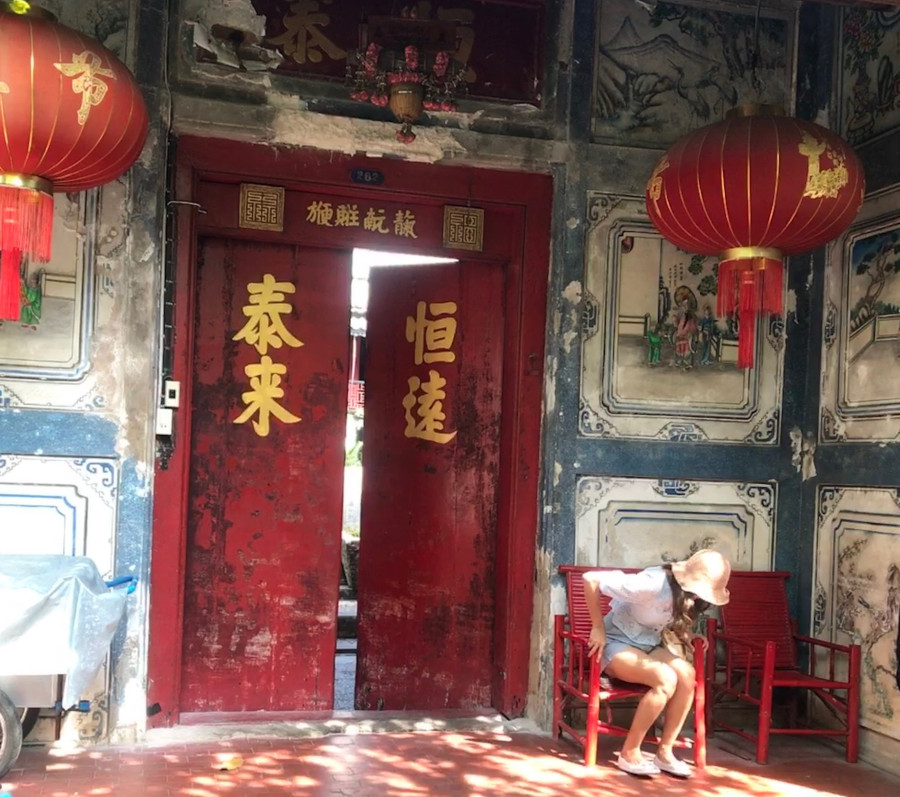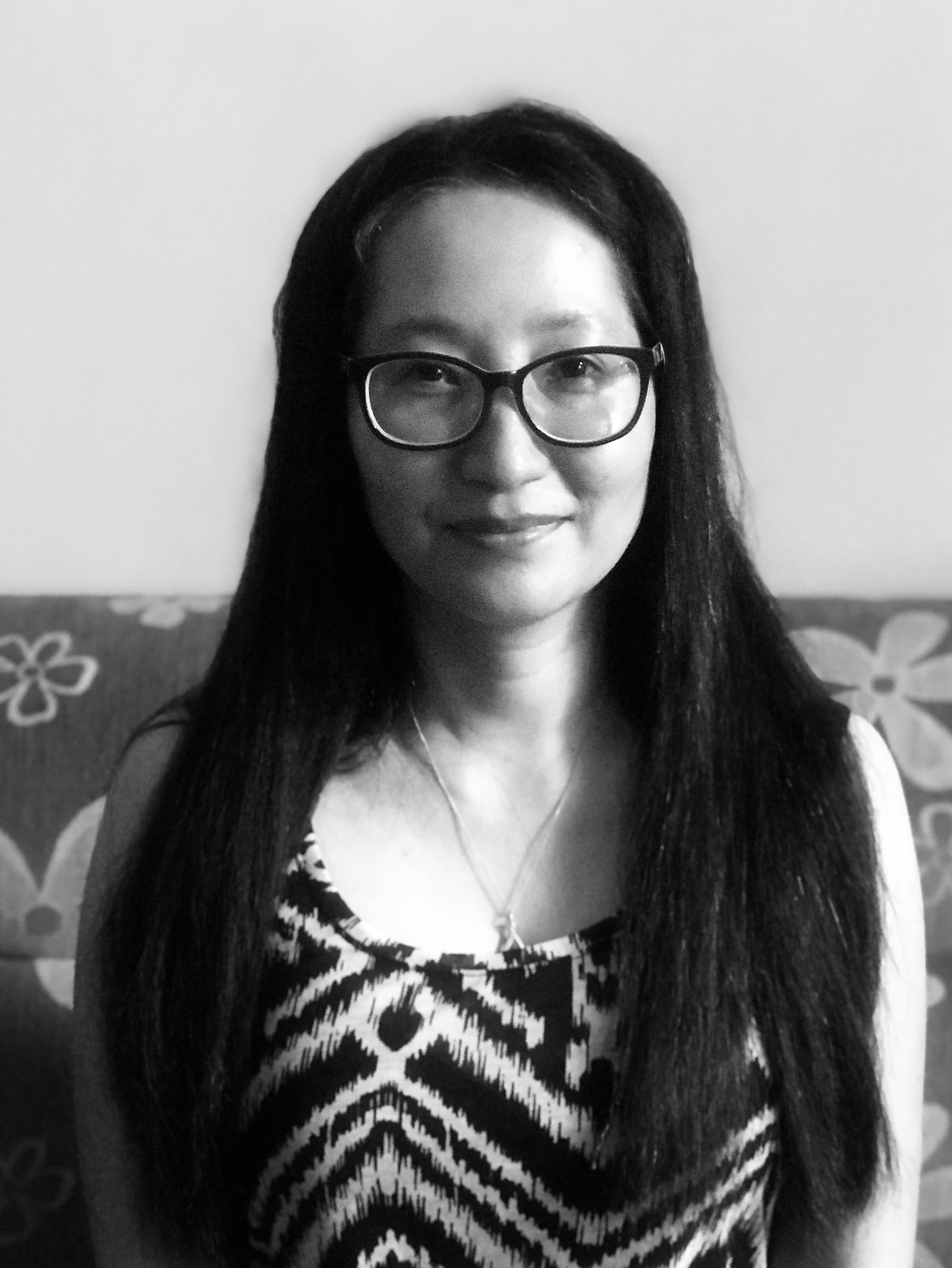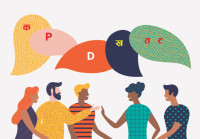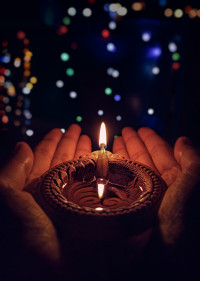As it is
An irrelevant story
I let the ambiguity hang in the air. There are a thousand ways of saying no.
Prateebha Tuladhar
This is the most irrelevant love story. I spring out of the taxi; and straight into your arms. You’re holding me like I have never been held before.
I only see your face when you release me. You take off your cap and I notice you have gone for a clean shave. There is no way of telling if you have any gray hair. You do not look any different from our last meeting, except, your neck does not appear as long as it is in my memory.
I know these things because my neck has shrunk on my shoulders, too. From what used to be a long neck that made my already prominent jaw bones stand out, I now have a more relaxed looking appearance. It gives me more confidence in the way I carry my head around. I hope you feel the same way with yours.
“It’s been a while.” Seven years. “What do you want to do?” you ask.
“Eat,” I say.
“Eat? What do you want to eat?”
“Anything that doesn’t contain meat.”
“Not easy in Southeast Asia,” you laugh.
I say I know and we start walking. We stop by to buy some fruits from a street vendor.
“I want to show you where I matriculate,” you say. And beginning from the ornate temple where we began our walk, we’re now swiftly entering narrow alleyways. This is what I wanted when I decided to move to this region, you explain. And around us are narrow walls of houses in green and cream and blue and pink; paling, peeling paint. This could have been anywhere in old Kathmandu, if it wasn’t for the design of the houses and the overpowering fragrance of tropical plants. Each house looks unlike the other. Each, has character.
We pass through the local market, where I buy some dumplings stuffed with chives. They taste like nothing I prefer; I eat anyway. You stop to greet women in a language I do not speak. When I ask what they are saying, you say they are just being racist towards you, and that you’re making small talk. I wonder if it has anything to do with me, but I don’t ask.
I ask you if you miss journalism. And your response surprises me.
“I don’t. Journalism is no longer what it used to be. There is no passion-driven journalism anymore and I prefer the times I worked in. These days, one person does journalism and the rest copy them. There is no originality.”
You bend down to pet a stray cat.
“Also…I realise I’ve become irrelevant.”
“Irrelevant?”
You go into a long explanation of how people no longer have conversations. How everyone is glued to their phones all the time and how you hate those devices and how you would never have carried one if it wasn’t an absolute essential. We go on about how the world is being shaped by the gadgets we carry. It feels like a conversation we have had before. On email.
“It seems like I’m the only one opposed to a smartphone.”
I’m guilty of my social media addiction and so I say nothing and let you continue.
“The reason I decided to be your main editor was because I noticed you were different from the others. You cared about people. You cared about people’s stories. That’s why I chose you.”
I chose you. I want your piece to sing, you would say. And when you had finished editing, you’d have breathed soul into it.
You propose we sit by the river for a while. We’ve found a glass house with a porch on which some homeless men are asleep. We join them under the scorching 37 degree heat. Every single pore of my body has opened up and perspiration is tricking like rain in slow motion. I hold out my bag of fruits to you. When you fork a slice of pineapple with the bamboo spike, I notice your skin is broken. Some of your fingers are wrapped under plaster. I touch it with my index finger.
“What happened?”
“I don’t know. My skin seems to be cracking. I have the same thing on my feet. It is painful. And I have these rashes on my skin that don’t itch but look like scars.”
I think it’s eczema of some sort, I say. And you tell me that’s what the doctor said.
“As we get older, our bodies begin to behave differently,” and I show you my gray hair. You say they become me.
We leave the riverside and head toward the alley. One of our stopovers is an old house with a massive red door where we meet some Chinese tourists doing photoshoots. You explain it used to be the residence of a Chinese tax collector, who collected toll on behalf of the government from trading ships that arrived at the dock. The house has a huge courtyard like the ones in the old Newa homes in Kathmandu. But the centre is a raised swimming pool, almost covering the entire courtyard, flanked by balconies. The house was restored into a restaurant for farangs.
“Someone is trying to encourage tourism in these lanes. It’s not good. The reason I chose this part of the city is because it doesn’t feel like a city. But with tourists, that will be gone. It will change how people here live”. You cannot hide your disappointment. Cyclists pass us by and we lean against the walls to make way for them. They shout sawasdee at us like it’s the friendliest reciprocation after invading space.
It feels like we’ve been walking together forever when we arrive at the foot of a condo in the middle of nowhere. We take the elevator up to the 13th floor to your apartment, and what I see blows my mind. The Chao Phraya river stretches below us; wide, risen from previous days of rain and glinting back at the skyscrapers.
“When I tried to rent this place, I was told it’s nothing more than a floor and a ceiling and I said that’s all I need. That was 35 years ago. If the windows weren’t this wide, the place would feel much smaller.”
The windows stretch all the way from the floor to the ceiling. Beyond it is the river, the city, the buildings, the people. But here, here there’s only silence and the sound of our voices.
Your bed is tiny and neat, like something that would belong to me and not to you. For some reason, I have imagined you would live like a boy. But that’s probably because you still laugh like one.
I cannot hold back my voyeurism and start at the photos on the wall.
“I’ve seen these,” I say to the volcanoes. There are four of them hanging on the wall. I recall a long email from you almost a decade ago now, of how you captured those in El Salvador and how you almost died doing that. There’s nothing more alive than being next to a volcano and seeing it erupt, you’ve always said. And that, in that is life. You’re so close to living on the edge. Volcanoes and wars in South America. And always the solitude.
Then you show me some photographs of who you call “my girls”. Two of them, your sisters from Guatemala. Another is the one you title the ‘Beauty and the Beast’: a beautiful guerrilla soldier woman with a nondescript armed man in the background.
“This one is a well-armed woman,” you laugh your boy laugh. You’re pointing at a picture of a very handsome woman carrying a gun and a camera, leaning against a wall, the texture of which spells tragedy. My mind swirls with questions. I want to ask if any one of them was a lover. What about the one with the pearl earring who always yelled, “Don’t step on a landmine!”
But I must catch the train soon.
“I have had lots of visits like these. A friend is in town and says can we meet for coffee? We meet and the person is always looking at the watch, and is in a hurry to leave because there is another appointment to keep”. You’re taking a jab at me.
I drift toward your closet and leaf through the black and white shirts hanging there. I touch a formal one with a collar and say I couldn’t imagine you wearing one of them. I’ve only ever seen you in tee-shirts and shorts.
“I wear them when I need a disguise.” We laugh.
I want to lie down on your bed and wait for the moon. But I must go.
“Hey, if we had met in another time, we’d have made a great team.” You say this, as I step across the threshold. I want to ask if you mean that if I was close to your age or if you were closer to mine. Or if you just mean another city and another time. But I let the ambiguity hang in the air. There are a thousand ways of saying no.
You hold me one more time. This time, to say goodbye. This time, we’re under the surveillance of a CCTV camera. But you hold me just the same. Then let go.




 22.64°C Kathmandu
22.64°C Kathmandu










